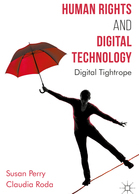
 |
|
Home | Research |
The American University Of Paris | ||||
ResearchMy research has recently developed along two main axes: (1) attention aware systems and (2) the impact of digital technology on societal organization. Attentional processes guide the allocation of cognitive and physical resources allowing one to both perceive the environment and act upon it; they also play an important role in many of the problematic situations faced by users of ICT environments. Understanding and appropriately supporting attention allocation would enable reducing information overload, limit the negative effects of interruptions, increase situation awareness, and support users in situations of multi-tasking. The state of the art are “hard wired” solutions which unfortunately break down when the type and number of devices, applications, and people change over time, when people frequently interleave several activities and are interrupted (by other people or devices), and when the activity on a system is just one element of a much more complex network of interactions. At the same time these are precisely the types of environments where people find themselves in today, as complex networked information systems consisting of (among others) smart phones, public displays and divers electronic assistants (e.g. in the car) and monitors pervade all areas of our lives. (hide) My research focuses on systems where multiple devices dynamically coordinate their interaction with the user so that they autonomously adapt their responses to the user’s attentional needs in the current situation (here you can see a simple simulated example of system behaviour). I expect that attention based device coordination will enable intuitive access to multiple devices by a larger portion of the population supporting in particular those operating under stress conditions (e.g. control rooms, drivers) or less capable of coping with high cognitive loads (e.g. elderly, differently able). This research, which is currently mostly based on findings in cognitive psychology and neuroscience, also extends to include social aspects of attention. (more)
2. Impact of digital technology on societal organization 
I have explored how the formal human rights framework interacts with information technology to provide citizens with leverage to intervene in governance in a myriad of new ways. Designers and regulators are faced with difficult decisions with respect to issues such as security, privacy, access, health defence, children and minority protection, transparency, control, etc. The analysis is based on a series of cases that illustrate the tough choices citizens and societies must make in order to harness the potential of digital technology, while balancing a range of human rights whose very functioning is called into question. For example, I have been one of the principle scientist in the EC funded project PRIPARE
|
News and Events CFP: first symposium on the Principles for Ethical Use of Digital Testimonies of Victims and Witnesses of Mass Violence, June 22-24 2026, at The American University of Paris, Paris, France
Speaker: Navigate: Digital Policy Leadership Retreat 24th June: Public Policy Leaders-Only Day At Harvard's Berkman Klein Center, Cambridge, MA June 2025 |
||||
|
|
|||||
(c) 2013-2025 Claudia Roda |
|||||